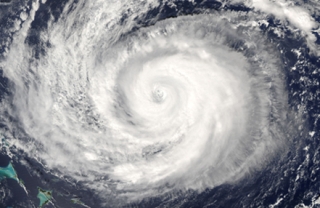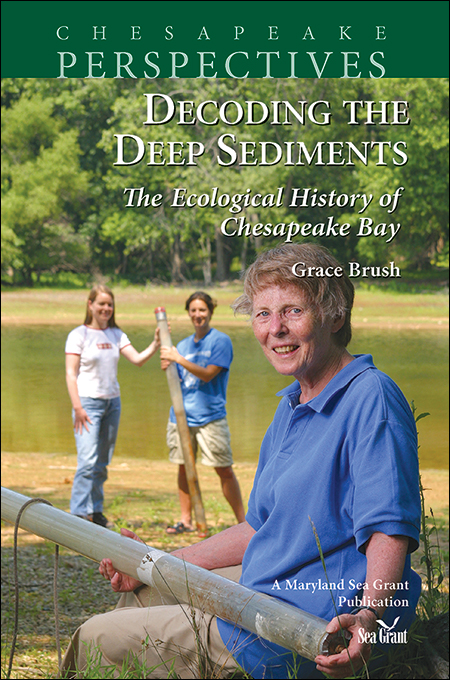Knauss legislative fellowships in Congress help build careers — and they're fun and educational. See our video and fact sheet for details.
Marylanders Know That Most Climate Scientists Agree About Climate Change
A significant fact in the national debate over climate change often gets lost in the shuffle. It’s this: based on decades of research, more than 97 percent of climate scientists are convinced that global climate is changing and human activities are the principle cause.
National surveys reported that few Americans realize the consensus is so high. The public’s lack of awareness may in turn be blocking discussion about how to mitigate and adapt to effects of rising temperatures and other aspects of climate change. But a new survey has now found a much higher level of awareness among Marylanders, Many of them appear to have heard the scientists loud and clear.
In Congress and some media outlets, skeptics of climate-change science assert there is no consensus but rather disagreement and uncertainty among climate scientists. As a result, the skeptics argue that the rest of us shouldn’t rush to support government actions – like controls to reduce carbon emissions — to lessen the harmful effects that climate change is expected to cause.
National surveys indicate that this line of argument may have influenced public opinion. In a 2015 poll by Yale and George Mason Universities, only 17 percent of American adults said that a large majority of climate scientists are convinced that human-caused climate change is happening. (Here, a large majority was between 81 and 100 percent of all climate scientists.)
But among Marylanders, awareness about the scientific consensus is high by comparison. According to the new survey of Marylanders released last week, nearly half (46 percent) of respondents said that more than 80 percent of climate scientists are convinced that climate change is happening. That’s a big increase compared with the 26 percent of Maryland respondents who gave this answer in 2014 and the 23 percent in 2013. This year’s survey of 1,547 Maryland adults was conducted by the George Mason University Center for Climate Change Communication and the Johns Hopkins University Bloomberg School of Public Health.
Those findings are significant because other research has shown that how citizens perceive scientists’ views on climate change in turn shapes how the citizens themselves think about this issue. Citizens who discover how strong is the scientific consensus become more likely to agree that humans are contributing to climate change, wrote Edward Maibach, director of the George Mason center, and his coauthors in a 2014 article. However, “Those who don’t understand the [level of] scientific consensus about human-caused climate change," they wrote, "are, in turn, less likely to believe that climate change is happening, is human-caused, will have serious consequences, and is solvable (i.e. can be mitigated through concerted action).”
Talking Up the Consensus
Maibach said this suggests that scientists should play a public-education role. Because of the credibility they carry with the public, scientists should tell everyone they can – in simple terms, and over and over again — about the strength of the scientific consensus, he said. “Occasional statements and press releases about the reality of human-caused climate change are unfortunately not enough to cut through the fog.”
Marylanders’ understanding of the scientific consensus on climate change might help explain why 45 percent of respondents in the new poll said that climate change is caused entirely or mostly by human activities, up from 37 percent in 2014.
On the other hand, many of the poll respondents underestimated the number of their fellow citizens who agree that climate change is occurring. Like public misunderstanding over the extent of the scientific consensus, that disconnect has important consequences. “We know from other social-science research that when people perceive that public opinion is different from theirs, their opinions are likely to be a lot less certain,” says Karen Akerlof, a research assistant professor at the George Mason center. “And we know from our surveys in Maryland that the more certain people are that climate change is happening, the more likely they are to support state climate and energy policies.”
Even without unanimity, many Marylanders supported taking action to deal with the effects of climate change. Nearly half (46 percent) of the poll respondents said that doing so should be a high or very high priority for the state government. That represents a slight increase from 2014.
The poll also indicated that majorities of Marylanders are concerned that climate change may harm the Chesapeake Bay and its aquatic life in coming years. More survey respondents expressed concern over effects in these two areas than about effects in 13 other areas, including public health and privately owned land (chart, below).
In the end, maybe a lot of us can agree on some things about the climate-change debate – for starters, that there’s a lot of agreement that the climate is changing and why. What to do about it, in ways that are effective and affordable, is another question for further public discussion.
.gif) |
| More survey respondents expressed concern over effects of climate change on the Chesapeake Bay and its aquatic life than about 13 other categories. Source: Figure 17, Public Perceptions of Climate Change: A Maryland Statewide Survey, Fall 2015, George Mason University and the Johns Hopkins University |
Photograph (top), National Aeronautics and Space Administration
For More Information
Special report in Chesapeake Quarterly, "Come High Water: Sea Level Rise and Chesapeake Bay."
Maryland Sea Grant's webpages on coastal flooding and climate change.
See all posts from the On the Bay blog







